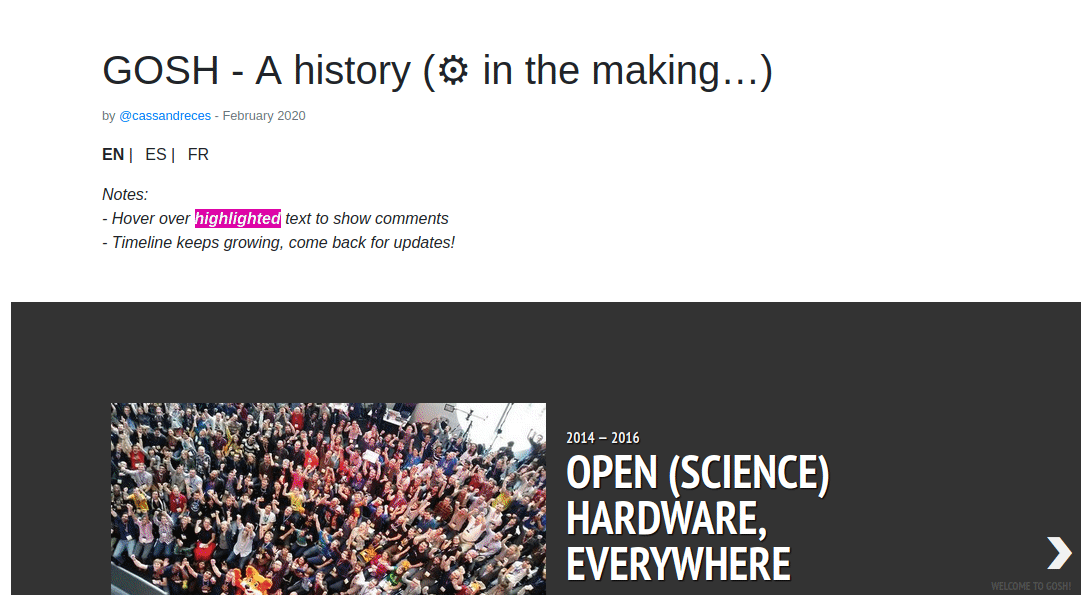On writing a (short) GOSH history
I find narrating stories both necessary and delightful. I enjoy the exercise of tracing threads back, crafting a path for the reader, (partially) understanding how and why things got to a certain point in time. Besides, there’s lot of power in putting the past into words; historical revisionism wouldn’t exist all along history otherwise, no?
In particular if you’re doing a PhD in Science & Technology Studies (STS) like me, you quickly learn how different stories, narratives and framings around technology shape the way it is perceived, adopted, rejected or regulated. You also quickly learn how important it is to question them:
Real change will come not when we turn away from technology toward meaning, but when we recognize the nature of our subordinate position in the technical systems that enroll us, and begin to intervene in the design process in the defense of the conditions of a meaningful life and a livable environment.
Andrew Feenberg in Questioning Technology, 1999.
Related to questioning technology, last weekend I was reading this thematic collection in Engaging Science, Technology, and Society journal. The collection addresses different aspects of the relationship between STS and democracy. I was particularly interested in an essay by Michael Lynch, on the role of questioning science and technology in an era of post-truth and anti-science movements. I don’t want to spoil it, but maybe you can get a hint by its title (kinda clickbait, no?): “We Have Never Been Anti-Science: Reflections on Science Wars and Post-Truth”.
That was quite a long introduction, but it served a purpose. I think one of the most powerful material ways we have today for questioning technology is building, playing and using open (science) hardware. And one of the easiest ways to start is to join a community, like the Global Open Science Hardware (GOSH) movement.
And here is why I made this post: After some months I finally published a reduced version of GOSH history, available now for community review. To do it, I interviewed 13 people who participated in different roles in GOSH since 2016 -and earlier in preparations-, read a lot of community docs and scraped social media -mostly Twitter-.
In perspective, I really enjoyed the process of interviewing such different people from all around the globe. I also feel, making reference to the beginning of this post, that in a moment like this when the community is facing change and growth, it’s important to understand where all started.
I published a reduced version as it’s supposed to give lots of info in a quick glance for those visiting GOSH website. A longer version is included in a chapter of my thesis that analyzes GOSH as a Grassroots Innovation Movement. I’ll also publish an article on it, but I have to decide in which journal (I’m between going for the Journal of Open Hardware or something more STS-related), if it gets accepted 🤞.

In terms of looks, I originally aimed to render the text with a vaporwave, retro-internet aesthetic. It would have looked soooo cool. But afterwards I thought it twice and realized it wouldn’t match GOSH website look & feel, so I became all boring and fell for a standard Bootstrap CSS. On the bright side, it allowed me to finally master CSS flexbox and tools for responsive design, so I can’t complain 🎉.